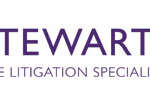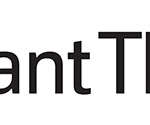The Commercial Court is going fully virtual on a case worth over $500m this week, with Linklaters and King & Spalding among those acting remotely as a result of the coronavirus lockdown. Meanwhile, insurers and claimants have reached an accord, with the groups set to work together throughout the pandemic to ensure a continued access to justice.
The Commercial Court’s ‘virtual courtroom’ will be in place from tomorrow (26 March) for a case where Linklaters will represent Bank of New York Mellon while King & Spalding is representing the other defendants The Statis, Ascom Group and Terra Raf in a ‘substantial multi-party litigation’, with The National Bank of Kazakhstan and The Republic of Kazakhstan acting as claimants. The case had originally been scheduled for seven days in the court with witnesses from America, Belgium and Kazakhstan all set to be called before travel restrictions were laid down due to the spread of Covid-19.
‘It was listed for a trial in the ordinary sense but this week as the crisis got worse, the judge instead ordered a virtual trial,’ Linklaters litigation partner Tom Lidstrom told Legal Business. ‘It is going to be totally virtual. In the past pieces of evidence have been given remotely, but to have every judge, advocate, witness and interpreter in different places is certainly novel.’
The move comes as courts have faced increased pressure to radically change their practices as Covid-19 continues to impose severe disruption throughout the legal industry. Yesterday, the Supreme Court went virtual for the first time in its history, conducting a case entirely through video conferencing. The Lord Chief Justice also took the decision earlier this week to suspend all new jury trials, with ongoing trials paused as measures are put in place to ensure they can continue safely.
While conceding the arrangements were ‘imperfect’, Lidstrom stressed it was possible the court systems could retain some of the technology used after the coronavirus pandemic has passed. ‘It comes down to whether the technology will cope. At the moment, we are doing in a matter of days what would normally take months or years to test. It will rest on how robust the new technologies and solutions prove. But we will see more of this in the civil sphere after Covid-19, subject to how the technology responds.’
Elsewhere insurers and claimants have reached an unlikely understanding, creating a protocol that will include an agreement freezing all limitation dates in personal injury cases. Claimants have accordingly been encouraged to respond sympathetically to defendant requests for an extension of time to serve a defence.
The arrangement is set to last for a minimum of four weeks, effective immediately, with a review in place that could see it extended should the need arise. It comes after claimant firm Thompsons and the Association of British Insurers (ABI) investigated methods of working together throughout the Covid-19 outbreak.
Commenting on its work to establish the protocol with the ABI, Thompsons head of policy, Tom Jones, said: ‘We have all needed to innovate because the normal rules governing the personal injury claims process have started to fray very fast. The threat to individual claimants and access to justice has become too great to ignore, and this protocol puts a practical framework in place.’













